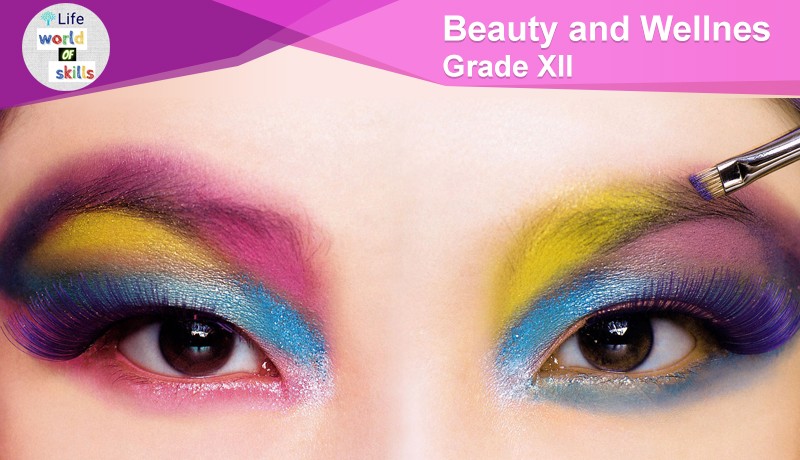
Grade 12 Beauty And Wellness ( 807)
Wellness is about making healthy lifestyle choices and maintaining one’s well-being both physically and mentally. In recent years, more people around the world have begun to recognize the importance of wellness – a trend that has seen the value of the industry increase year on year. The various segments making up the wellness industry are diverse and include, among others, healthy eating and weight loss, fitness, alternative medicine, and the spa industry.
Course Timeline:
There are four basic types of healthy skin: normal, dry, oily and combination skin. Skin type is determined by genetics. The condition of our skin can, however, vary greatly according to the various internal and external factors it is subjected to.
What is normal skin? 'Normal' is a term widely used to refer to well-balanced skin. The scientific term for well-balanced skin is eudermic. The T-zone (forehead, chin, and nose) may be a bit oily, but overall sebum and moisture is balanced and the skin is neither too oily nor too dry.
Dry skin isn't usually serious. In most cases, it's caused by factors like hot or cold weather, low moisture in the air, and soaking in hot water. You can do a lot on your own to improve your skin, including using moisturizers and avoiding harsh, drying soaps. But sometimes dry skin happens often or is severe. In these cases, you may need help from a doctor who specializes in the skin (dermatologist).
Although oily skin can clog pores and lead to increased acne breakouts, oily skin also has many benefits. Oil helps preserve the skin, and people with oily skin tend to have thicker skin and fewer wrinkles. The key is to strike a balance between having too much oil and maintaining your skin’s natural moisture.
A combination of oily and dry skin can appear in different ways and in different amounts. There’s no hard and fast rule to how it looks and feels, and it’s not as if your skin is going to be exactly 5 percent dry and 50 percent oily all the time
Sensitive skin isn’t a disease that a doctor can diagnose you with. It’s usually a symptom of another condition. You may not even know you have sensitive skin until you have a bad reaction to a cosmetic product, like soap, moisturizer, or makeup.
Skin changes as you age, but the aging process will be different for everyone based on their genetics and environment.
Think of surface color as to how you'd describe your skin to someone else, i.e, “light”, “tan”, “dark”, etc. To make it easier for you, there are already four (broad) categories of color that your skin might fall into, which are: Fair - The lightest range of skin tones. You likely burn easy and have lig
The days have gone by when people or youngsters considered a beautician as a lower profile, and they didn’t want to get into this career. Now, it is one of the best and most rewarding career options among new generations. Youngsters in a large number are selecting this field. Before going ahead with how to be a beauty therapist or beautician, you should know the primary point of who the beautician is.

